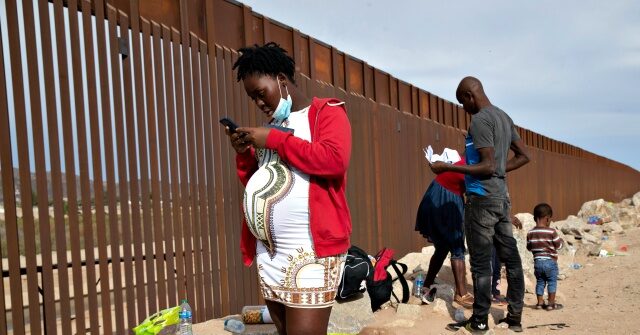The issue of birthright citizenship in the United States has recently come to the forefront, particularly with the election of President-elect Donald Trump, who has made it a key component of his proposed immigration reforms. According to a poll conducted by The Economist/YouGov, a significant portion of the American adult population—both white Americans and Hispanics—expresses support for changing the current policy that grants automatic citizenship to children born in the U.S. to illegal immigrants, commonly referred to as “anchor babies.” The survey indicated that 45% of the general population supports ending this policy, with notable support among various income earners and political affiliations. For instance, 66% of Republicans favor the plan, alongside higher proportions of individuals earning between $50,000 to $100,000 and those with incomes exceeding $100,000.
Endorsing this change, Trump announced he would take immediate action upon taking office, revealing plans to sign an executive order clarifying federal policies toward birthright citizenship. This declaration was made during an interview in May 2023, where he underscored his commitment to reinterpreting the law to prevent children of illegal aliens from automatically receiving U.S. citizenship. Such moves are likely to resonate with supporters who believe that birthright citizenship contributes to the broader immigration challenges facing the nation, including welfare dependency and familial immigration chain reactions that could prolong legal residency for noncitizens.
The term “anchor babies” underscores a growing concern regarding the ramifications of current citizenship policies. Proponents of reform cite evidence suggesting that households headed by illegal aliens are far more likely to receive welfare assistance compared to those headed by native-born Americans. This disparity raises questions about the sustainability of providing citizenship to children born to parents without legal status, as these children grow up potentially able to bring their noncitizen parents into the U.S. legally as they reach adulthood. It is estimated that there are approximately 5.8 million anchor babies currently residing in the U.S., a figure that has exceeded the annual number of American births, highlighting the scale of this issue in the broader immigration discourse.
Legal scholars are divided on the interpretation of the 14th Amendment concerning birthright citizenship. While many Americans assume the Citizenship Clause guarantees automatic citizenship to children born in the U.S. regardless of their parents’ immigration status, many conservative legal experts argue otherwise. They contend that, during the time of the 14th Amendment’s ratification, the language stipulated that such children must be subject to U.S. jurisdiction, which they argue does not apply to those born to parents who are illegal aliens. Such interpretations challenge established norms and open the door for legal reconsideration of a policy that has its roots over a century ago.
Globally, the U.S. and Canada stand out as among the few developed nations that uphold unrestricted birthright citizenship; most countries have moved toward more restrictive measures. For example, many European nations such as France, Spain, and Ireland grant citizenship only to children born to at least one citizen parent, a practice that suggests a shift towards ensuring that citizenship is tied to a legitimate national connection. This phenomenon may prompt a reevaluation of U.S. immigration and citizenship laws, especially as policymakers look to establish a framework more consistent with international standards.
In conclusion, the discourse surrounding the end of birthright citizenship for children of illegal aliens reflects a growing sentiment among Americans who are concerned about immigration and its associated challenges. With significant support from various demographics and the political will indicated by Trump’s intended executive actions, the future of this policy could hinge on both legal interpretations and public perceptions. Issues such as welfare dependence, family reunification, and international comparisons continue to shape this debate, positioning it as a pivotal topic in America’s ongoing immigration discussion. As both public opinion and legal scholarship evolve, the implications of changing birthright citizenship policies could have far-reaching effects on the nation’s immigration landscape for generations to come.

